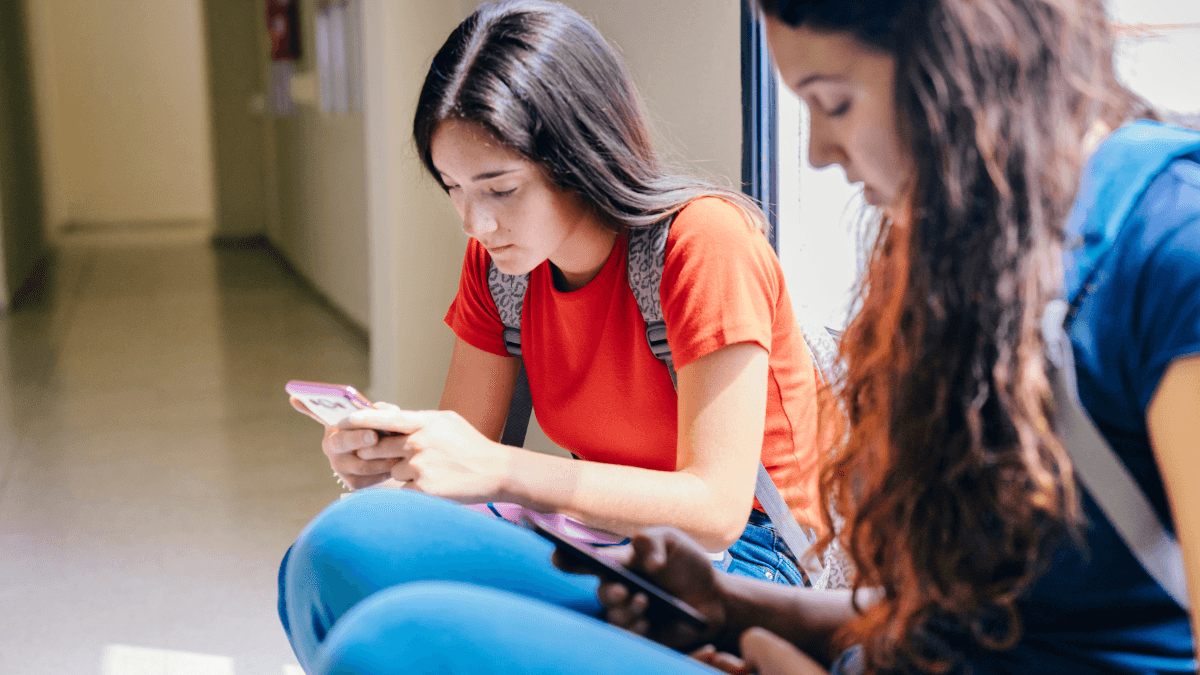
☝️ At a glance
- Students today face high levels of stress, anxiety, and emotional challenges due to academic and social pressures.
- Mental health apps provide easy access to tools like mood tracking, breathing exercises, and virtual therapy.
- Apps such as Headspace, Calm Harm, BetterHelp, and Sanvello offer personalized features to support student well-being.
- While not a replacement for therapy, these apps encourage healthy routines and help fill gaps in traditional mental health care.
Introduction
In this fast-paced world of the digital age, mental health is the biggest concern among young people, as they are more affected. As they face academic pressure, social dynamics, and future concerns, students today face many kinds of stress and anxiety.
While traditional therapy remains a helpful resource, mental health apps have also emerged as powerful tools to offer support, comfort, and healing.
These mental health apps are reshaping the way mental health services are delivered, bringing everything from self-care tools and mindfulness techniques to therapy sessions and guided meditations directly to their devices.
Let’s explore how these apps are helping young adults build healthy habits, manage stress, and improve their emotional well-being.

Become a global doctor with MBBS abroad!
Studying abroad can be affordable and stress-free with futureMBBS:
- World-recognized universities with English-taught programs
- On-site support in partner university cities
- Guaranteed placements & internships for hands-on experience
From selecting universities and supporting you with the application process to orientation and finding accommodation – we are at your side.
Why mental health support is crucial for students
The college years and high school period are often filled with excitement, friends, and studies, but challenges come along, and there could be many reasons for this. Students often face failures and are compared by others, and many more.
For some, these challenges may turn into serious mental health concerns such as depression, post-traumatic stress disorder, or self-harm, etc.
That’s where technology steps in with a smartphone in almost every student’s hand. Health apps have become convenient, affordable, and private options to manage mental well-being.
How mental health apps work
Most mental health apps are designed to be user-friendly. A simple app can provide many features, such as
Track mood and monitor emotional highs and lows
Breathing techniques and relaxation exercises to manage anxiety
Meditation exercises and sleep stories to support a good night’s sleep
Self assessment tools to better understand one’s mental health
Access to professional care through virtual therapy sessions
Peer support communities for sharing and learning
Step-by-step guided meditations and mindfulness exercises
Self care resources like reading materials, habit tracking, and positive thinking prompts
By integrating such different tools into your life, you could feel calm, manage stress, and be a productive student. These apps give students the ability to care for their mental wellness at any time, even between classes or during late-night study sessions.

Popular mental health apps
Here are some of the most effective and widely used mental health app, each app offers different features. Let's explore.
1. Calm harm
Designed to help individuals resist or manage the urge to self-harm, Calm Harm uses dialectical behavior therapy (DBT) techniques.
It provides step-by-step guidance through breathing, distraction, comfort, and release exercises. It is a powerful resource for students facing overwhelming emotions.
2. Headspace
This app is a favorite among students for its easy-to-follow meditation exercises, nature sounds, and sleep stories.
Whether you want to exercise mindfulness, boost focus, or reduce stress, Headspace offers structured daily life programs rooted in positive psychology.
3. Smiling mind
Developed by psychologists and educators, Smiling Mind focuses on young people, including college students and good teens, offering age-appropriate mindfulness exercises.
It promotes emotional regulation, self confidence, and self esteem.
4. Betterhelp
BetterHelp connects students with licensed mental health professionals for online sessions.
It is a great alternative for students seeking traditional therapy but constrained by time or location.
5. Sanvello
This app combines cognitive behavioral therapy (CBT), mood tracking, and peer support.
Sanvello offers tools to manage stress, cope with anxiety, and foster mental wellness with guided journeys and assessments.

Study medicine abroad with 100% support!
futureMBBS offers full support to make your dream of studying medicine abroad a reality.
- Hassle-free admission guidance
- Fast-tracked visa processing
- Post-arrival support, including accommodation assistance
Key benefits of mental health apps
1. Immediate support
Mental health apps provide immediate support, acting like a digital lifeline with accessible techniques and tools.
2. Privacy and convenience
Some students hesitate to seek help due to embarrassment. Using an app on a mobile device allows them to seek support privately and without judgment.
3. Cost-effective
With rising costs of healthcare and limited insurance coverage, many apps offer affordable or free versions.
4. Customizable experience
Whether it’s anxiety, self harm, or simply building positive thinking, users can pick features tailored to their personal journey. From sleep stories to cognitive behavioral therapy CBT, the options are broad.
5. Encourages routine
Apps encourage students to build routines around mental wellness, like using breathing exercises in the morning or listening to bedtime stories for better sleep.
Addressing the gaps in traditional therapy
While mental health apps are not a replacement for therapy, they serve as a bridge. Some students may be on waiting lists for mental health services, live in areas with limited access to mental health professionals, or have difficulties finding culturally competent care.
These apps fill that gap by providing self care tools, additional resources, and even help users schedule appointments for in-person care if needed.
Challenges and limitations
Despite the numerous benefits, there are some limitations:
Apps may not always provide deep, individualized care that face-to-face therapy offers.
Users must ensure their chosen apps maintain secure and private platforms because they could sometimes leak data.
Like any self-guided tool, the effectiveness of these apps depends on the user’s commitment.
A step toward a healthier future
In the landscape of modern education, mental health apps are not just a trend, they’re a necessity. They motivate students to monitor their emotions, reach out for help, and build the resilience they need to navigate academic and personal life. These apps promote not only mental wellness but also equip students with lifelong tools to manage strong emotions, self care, and positive thinking.
For those studying in high-pressure environments like medical schools, these tools become even more crucial. Institutions and educational consultancies should encourage their use, particularly for students navigating the intense demands of a medical career.
Your medical career abroad starts here!
Thinking of pursuing MBBS abroad? Don’t just dream it, do it!
Start your MBBS journey!Conclusion
As more people open up about mental health, technology is helping students. They support from simple breathing exercises to mindfulness tools. These mental health apps are a great way to manage stress, especially for students juggling studies and plans.
At futureMBBS, we believe that your mental well-being is just as important as your academic success. That’s why we work closely with top international universities that don’t just focus on marks or give pressure, they support students, help them grow, and create a healthy environment.
Frequently asked questions
What is the most used mental health app?
Calm and Headspace are among the most widely used mental health apps globally.
Is there an app that helps with mental health?
Yes, apps like Calm, Headspace, and BetterHelp offer guided meditation, therapy, and stress management tools.
How to improve mental health for students?
Students can improve mental health by maintaining a routine, practicing mindfulness, staying physically active, and seeking support when needed.
Which app is best for mental ability?
Lumosity and Elevate are popular apps for enhancing mental abilities like memory, focus, and problem-solving.




